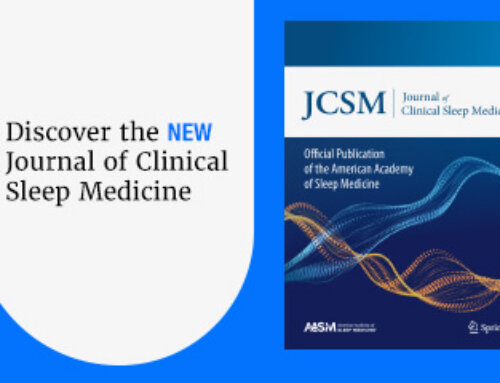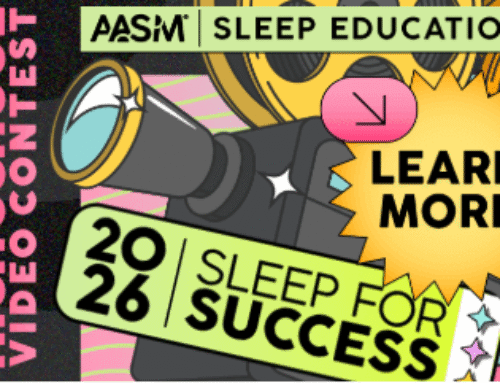FOR IMMEDIATE RELEASE
CONTACT: Lynn Celmer, 630-737-9700, ext. 9364, lcelmer@aasm.org
DARIEN, IL – A new study shows that severe obstructive sleep apnea (OSA) contributes to poor blood pressure control despite aggressive use of anti-hypertensive medications.
Among study participants who were taking three or more anti-hypertensive medications, the risk of resistant blood pressure (BP≥130/80 mm Hg) was three times higher in those with severe OSA compared with moderate OSA after adjusting for age, body mass index and diabetes mellitus (adjusted odds ratio = 3.29).
“Our findings suggest that severe OSA contributes to poor blood pressure control despite aggressive medication use,” said Harneet Walia, MD, assistant professor of family medicine at the Cleveland Clinic Lerner College of Medicine of Case Western Reserve University. “This is important as poor blood pressure control in patients taking multiple anti-hypertensive medications makes them particularly vulnerable to increased cardiovascular risk.”
The research abstract was published recently in an online supplement of the journal SLEEP, and Walia will present the findings Tuesday, June 4, in Baltimore, Md., at SLEEP 2013, the 27th annual meeting of the Associated Professional Sleep Societies LLC.
Data were analyzed from the baseline examination of the Heart Biomarker Evaluation in Apnea Treatment (HeartBEAT) study, a four-site randomized controlled trial comprising patients with moderate to severe OSA who were under cardiovascular disease management. The analysis involved 284 participants, of which73 were prescribed three or more anti-hypertensive medications including one diuretic. Resistant blood pressure was found in 58 percent of participants with severe OSA and 28 percent of those with moderate OSA.
“Even under the close care of a cardiologist following national guidelines for treatment of cardiovascular risk and comprehensive medication regimens, severe levels of OSA versus a moderate level of OSA appear to be contributing to suboptimal blood pressure control,” said Walia.
According to the Centers for Disease Control and Prevention, 36 million American adults with high blood pressure don’t have it under control. The American Academy of Sleep Medicine reports that obstructive sleep apnea is a common sleep problem that occurs in 30 to 40 percent of people who have hypertension. OSA involves repetitive episodes of complete or partial upper airway obstruction occurring during sleep despite an ongoing effort to breathe.
For a copy of the abstract, “Severe Obstructive Sleep Apnea is Associated With Poorly Controlled Blood Pressure Despite Anti-Hypertensive Medications: Heart Biomarker Evaluation in Apnea Treatment (HeartBEAT) Study,” or to schedule an interview with Dr. Walia or an AASM spokesperson, please contact AASM Communications Coordinator Lynn Celmer at lcelmer@aasm.org.
A joint venture of the American Academy of Sleep Medicine and the Sleep Research Society, the annual SLEEP meeting brings together an international body of more than 5,500 leading clinicians and scientists in the fields of sleep medicine and sleep research. At SLEEP 2013 (www.sleepmeeting.org), more than 1,300 research abstract presentations will showcase new findings that contribute to the understanding of sleep and the effective diagnosis and treatment of sleep disorders such as insomnia, narcolepsy and sleep apnea.
The American Academy of Sleep Medicine considers sleep disorders an illness that has reached epidemic proportions. Board-certified sleep medicine physicians in an AASM-accredited sleep center provide effective treatment. AASM encourages patients to talk to their doctors about sleep problems or visit www.sleepeducation.com for a searchable directory of sleep centers.




